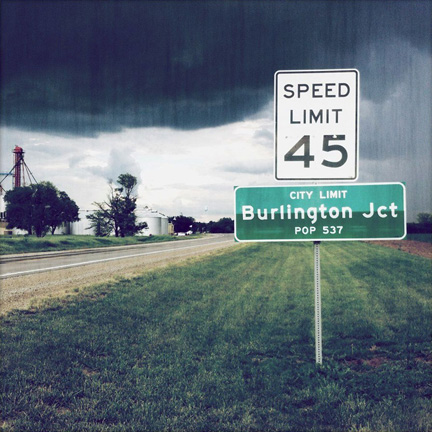 On January 6, the Burlington Jct. City Council listened intently to officials from Public Water Supply of Nodaway County, commonly known as rural water, on their offer concerning the future of the town’s water plant.
On January 6, the Burlington Jct. City Council listened intently to officials from Public Water Supply of Nodaway County, commonly known as rural water, on their offer concerning the future of the town’s water plant.
The meeting was not regularly scheduled; however several other items of business were attended to while the council met. The citizen’s gallery saw 10 non-elected citizens to witness the council proceedings.
The city had dipped into the debt service reserve to pay the amount of payment owed on the water plant three times. Payments are increasing due to a financing plan from the beginning. Little of the current payment is going toward principal of the $1.2 million debt.
Mayor Justin Plymell explained three options the city has to get back monies for the debt payment. Option one was to increase the water rate by $25 to $35 monthly, decrease the employee cost and have other items cuts from the city’s budget. Option two was to sell the water plant and distribution system to rural water and that organization would shoulder the debt. Option three would be to delay the decision to a later date or to a citizen vote during the April 7 election.
John Blackford and Brock Pfost, representatives of the rural water group, discussed their offer to pay the outstanding bill of water sales and will continue with the contract for 10,000 to 12,000 gallons daily until a new agreement is settled. This amount, $69,920, will aid the city to be in compliance with the debt service reserve. The duo noted taking over the water system for the city would be an easy transition. Several of the citizens in attendance quizzed the duo on charges, where the water would come from and how the meters are read. Charges would be a minimum of $30 and $15 per 1,000 gallons. The water could originate from Maryville or from Clarinda, IA. Rural water just installed auto-read meters.
William McCaffree, McCaffree Law Firm, suggested that option three was the best route for the city and he had prepared the appropriate ordinances for the council to address. City Secretary Angie Lightner noted that the election ordinance, option three, would split the sewer off from the water system, which would mean no monies would be available if Missouri Department of Natural Resources required lagoon improvements. The bond money could be the city’s match on a grant that was being applied for.
Derelict vehicles around town was also brought to the council from the gallery.
Lightner stated the annual $14,495 insurance payment has been made. No discrepancies were found with the audit. Council approved the audit.
She reminded council of the election dates; the last day to sign up is January 21. The mayor and two councilmen seats are up for re-election.
Ordinances 581, 582 and 583 pertaining to the possible sale of the water plant, a question on the upcoming April election, and the separation of the combined waterworks and sewerage system were discussed. Council decided to table these three ordinances indefinitely until they have pursued every option.
Lightner had spoken with Stephanie Ross, Midwest Assistance Program, to see if she could aid the city with the finance direction.
At the next month’s meeting, Tuesday, February 11, the council will address increasing water and sewer rates.




Facebook Comments